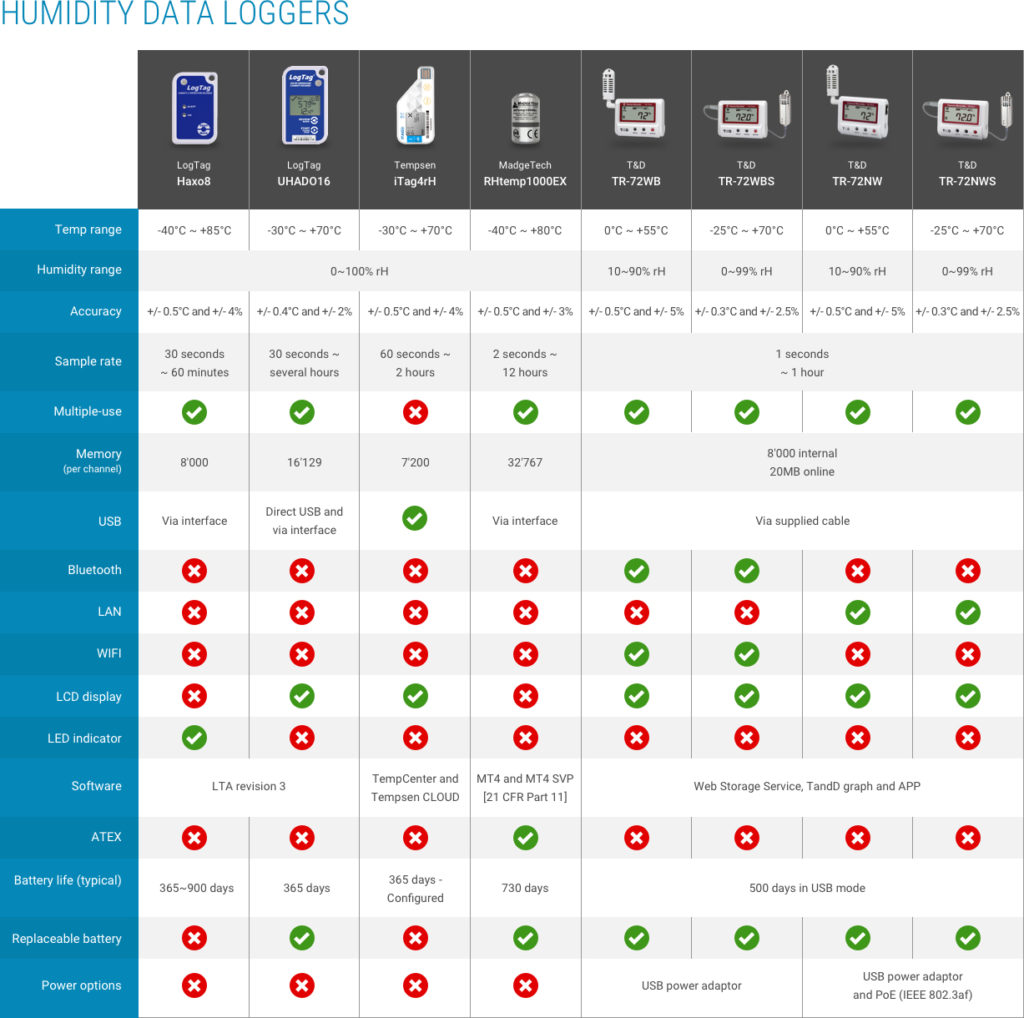What are humidity data loggers used for?
Humidity data loggers are used for measuring the level of moisture in their air, as well as the air temperature. The moisture in the air in proportion to the air temperature is called ‘relative humidity’, which is a vital parameter to measure in terms of comfort and performance in a particular environment.
A humidity data logger is designed to measure how the level of humidity in the air changes over time, allowing facility managers to monitor where desired or ‘safe’ temperatures have been breached. Humidity monitoring allows facilities to generate proof and validation of safe temperature conditions, helping to meet vital government legislation and compliance.
At Loggershop, we offer a range of humidity loggers to suit your requirements, including wireless and USB options for quick and easy reporting.
What industries most commonly use humidity data loggers?
Humidity data loggers are most commonly used for environmental monitoring, of both appliances and large facility areas. This is usually to ensure that environments maintain conditions that are comfortable for those working in them, but also to ensure that safe levels of humidity are maintained to meet compliance. Here are a few examples of facilities that require humidity monitoring:
- Sensitive products: Many regulations require proof that products, especially medicine and food, have been stored and/or transported in certain conditions.
- Offices and Industrial Spaces: These facilities most commonly have air conditioning and heating systems, which can pose the risk of improper air flow and ventilation. Offices and industrial spaces, such as factories, can ensure that employees are working in safe and comfortable conditions with effective humidity monitoring.
- Greenhouses: Using a humidity recorder in a greenhouse is vital for ensuring healthy growth of plants and food. Humidity monitoring in a greenhouse also prevents product wastage, as you can prevent humidity from breaching the desired level.
What compliance do humidity data loggers help you to meet?
Facilities that measure humidity with a data logger can validate the exact temperature and humidity levels that were reached. This means they can specifically prove where they meet legal government compliance.
A very important legislation to meet when monitoring humidity is HSE (Healthy Safety and Environment) compliance. This enables facilities to prove that people are working in a safe environment and are not at risk of Sick Building Syndrome (SBS). This is where humidity levels become too high, which can cause some symptoms of illness such as throat irritation, coughing and headaches.
Take a look at our comparison guide below to help you choose the perfect humidity data logger for your application. If you would like any further advice on humidity monitoring, contact our friendly team to discuss your project’s requirements. Simply call 01929 459 459 and we will be happy to help!






